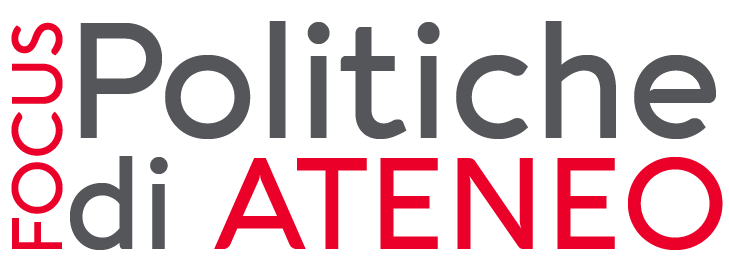Widespread in America, Canada, Australia and New Zealand, and already applied sporadically in Italy, Popular Financial Reporting, or Bilancio POP, is the most advanced stage of integrated reporting, suitable to represent in a usable, synthetic and accessible way the work and the organisational reality of public bodies, but also boards and school districts.
The report is oriented towards the representation of primary information for stakeholders. This approach, to be undertaken in the process of defining the contents and reporting results and in the continuous dialogue, is the new vision that at the international level is suggested by the GRI (Global Reporting Initiative) that has been active since this year and that the EFRAG (European Financial Reporting Advisory Group) has launched with the definition of social reporting standards.
For this reason, for some years now, in the realisation of the PFR in Italy, artificial intelligence has been used to identify key information, which allows mapping and synthesising the main issues through the reactions and interactions generated on social media. This is also a kind of technology that the Department of Management and the University of Turin through the research group led by Prof. Paolo Biancone has embraced and of which they have familiarity. The tool makes it possible to map more than 40 social channels including Facebook, Twitter, Instagram and define which topics and themes have generated positive, negative or neutral sentiment. This information, processed and studied, allows answering any doubts or dissatisfaction of stakeholders and highlighting the topics perceived most positively or that generated the most involvement and participation on social media.
Introduction

Moreover, our university has joined the RUS (Network of Universities for Sustainable Development) and contributed to the creation of a regional representation, RUS Piedmont, which systematises the support of all the universities in Piedmont with regard to common actions and ‘good practices’ in the field of sustainability in university sphere. This synergy has allowed us to participate in the realisation and implementation of the Protocol ‘The Piedmont Region for green education’, already signed in 2016, together with the most important territorial, public and private actors.
In Italy, we are the first university to have implemented the University Participatory Balance Sheet with the aim of fostering active involvement of the university community, through the methodology of listening, reporting and communication, adopted in the realization of the Participatory Balance Sheet.
Today we celebrate a new step in sharing transparency with the publication of the Popular Financial Reporting (PFR), also known as the “Bilancio POP”, a document capable of summarising the key areas identified according to the guidelines “The University Sustainability Report” and the RUS-GBS Standards identity of UniTo, according to an approach that makes it dynamic in content and time. The PFR stimulates communication activities from all components of the University of Turin and allows us an analysis close to the concrete needs of students, teaching staff and all those who work within the University, creating a global vision that other social reports are unable to guarantee.
We are proud to present this first edition of the Popular Financial Reporting of the University of Turin.
The Rector,
Prof. Stefano Geuna
Dissemination plan
The Integrated Popular Reporting incorporates a widespread dissemination plan in order to stimulate knowledge and dialogue. Indeed, the main purpose of this document is to involve the largest number of students, professors and all those working within the University, in the evaluation of the results achieved.
The document is shared in print and digital formats through:
- Distribution to the media
- presentation at press conference
- sending press releases
- interviews
- references within press releases pertinent to teaching, research, third mission and placement of the University of Turin in the national and international panorama
- Publication and promotion on
- UniTo’s institutional website
- UniTo’s social channels
- project sites
- Sending to
- Directors of University departments
- Rectors of other Italian and foreign universities
- University students and staff
- Summary presentations
- at events attended by the Rector or Directors of the University’s Departments or their delegates
- on the occasion of orientation activities in secondary schools (PNRR project)
- orientation meetings and presentation of the Athenaeum
Visit in-depth pages on University of Torino Bilancio POP 2023.
Conclusions
UniTo confirms itself as a cutting-edge knowledge production center, with a position of absolute prominence on the international scene and among the most prestigious academic realities on the Italian scene. The numbers speak for themselves: for ARWU Shanghai (Academic Ranking of World Universities) it is among the top 300 universities in the world and 5th in Italy for teaching and research activity. As for sustainability per Greenmetric it is 22nd in the world. The Department of Philosophy, one of the oldest disciplines of humanity, the field of knowledge that questions reality in all its aspects and allows the development of critical thinking, stands out: here UniTo, according to the “Qs Subject Ranking” 2023, is 45th in the world.
In Italy, UniTo ranks 3rd in terms of the number of Departments of Excellence and in terms of research training it ranks 2nd. It is among the top 10 universities with the best scholarships. It ranks 6th in the number of funded Departments and with 8 Departments it entered the selection of the 180 that will receive funding from the Ministry of University and Research (MUR), worth €62,275,000 in the five-year period 2023-2027.
UniTo’s investment in research has also grown thanks to the PNRR, obtaining more than €100 million in funding.
The PFR outlines an Athenaeum where research and education are constantly innovated and enhanced, a hub capable of affecting the entrepreneurial vitality of the area and contributing to its inclusive and socially, culturally and economically sustainable growth, a reference capable of accompanying students and researchers to experiences abroad and influencing the world of work with a higher number of students hired after graduation than the national average. Last but not least, UniTo pays attention to gender equality, policies for the inclusion of students with disabilities, and environmental responsibility.
These are results of strategic choices to support research, interdisciplinary and international collaborations. Choices that the university is structuring in an increasingly judicious way, starting from listening to the needs of all stakeholders. This is demonstrated by the decision to develop the first PFR, downstream of a working approach that focuses on transversality, highlighted in the Strategic Plan for 2021-2026. The PFR focuses precisely on the reference areas outlined in the Strategic Plan and analyses its “echoes,” through the analysis of the main numbers and actions that have stimulated a substantially positive debate on social channels.
There are no major critical issues emerging, but there remains space for improvement, in accordance with an approach that is part of the researcher’s DNA: maintaining achievements is challenging but surpassing them is the enterprise toward which to strive. Renewing oneself every day is imperative, and UniTo is constantly striving in this direction. An example of this is the master’s program designed to foster the integration of humanities disciplines and the application of Artificial Intelligence. And precisely the use of AI, which also finds expression in the realization of this Report, is one of the crucial lines of development, in all its declinations.
The process of growth and continuous improvement cannot be isolated but must fit into a logic that sees the university integrated into the territory. The planning of university settlements within the urban fabric is, for example, a great opportunity to redesign public space. Likewise, the Athenaeum’s commitment in programs for attracting flows of students and professors from abroad must be accompanied by the growth of territorial offerings in terms of infrastructure and services.



